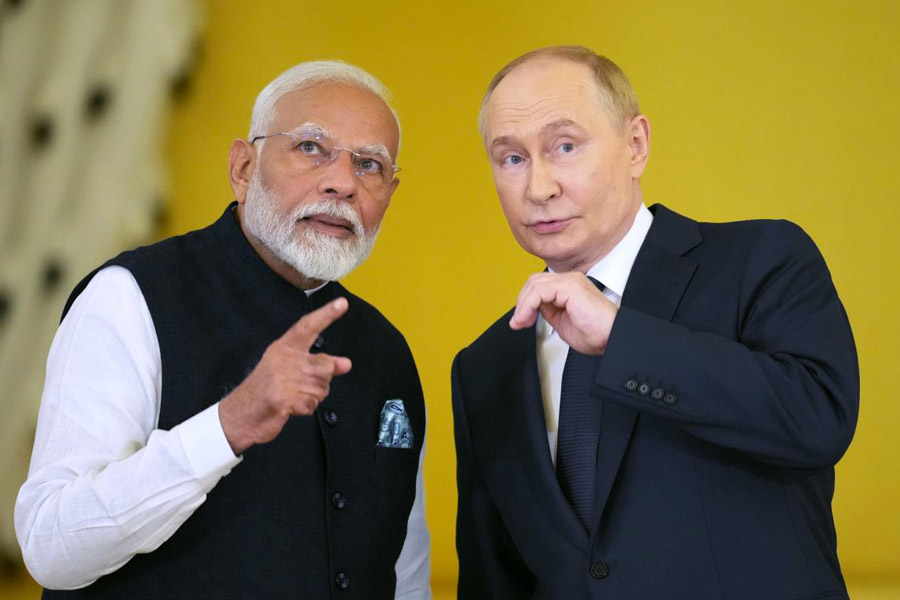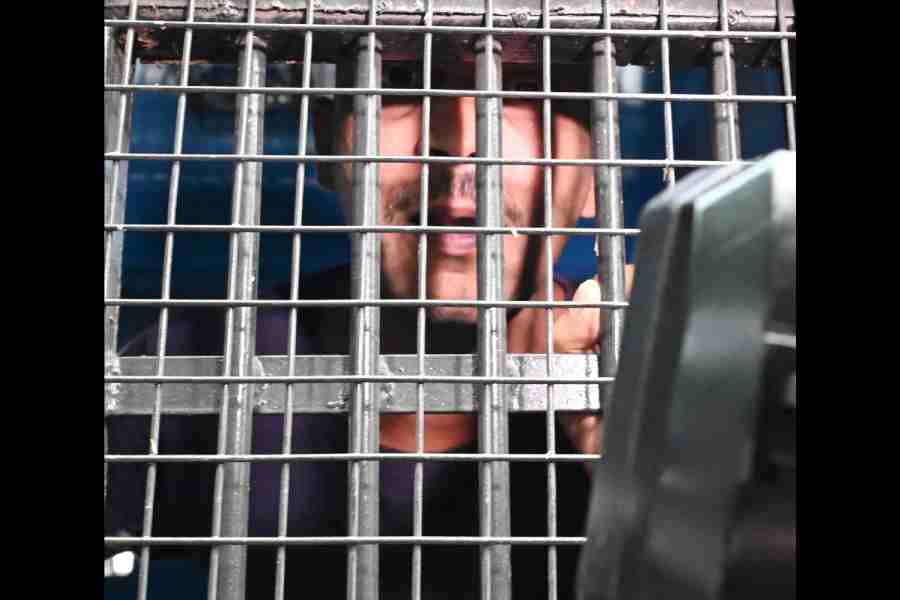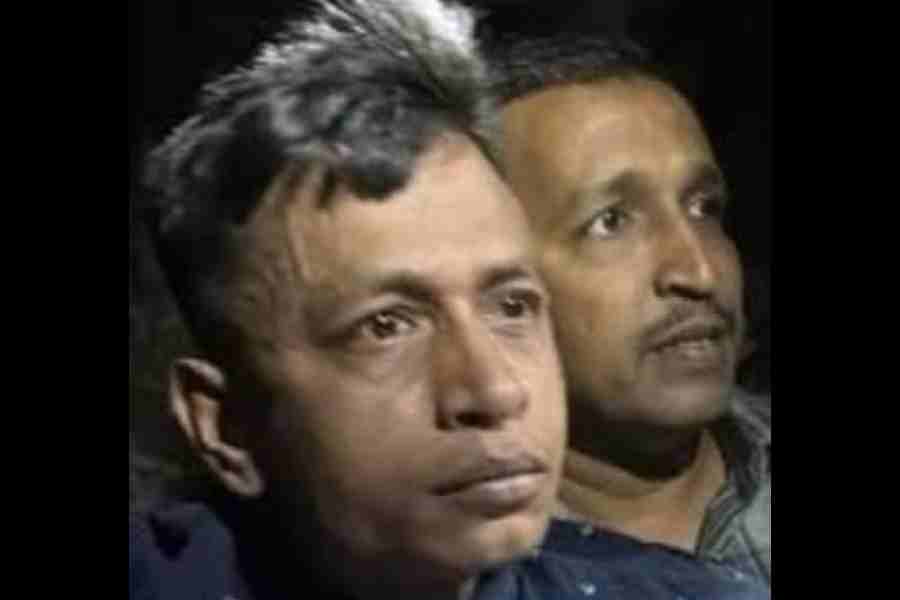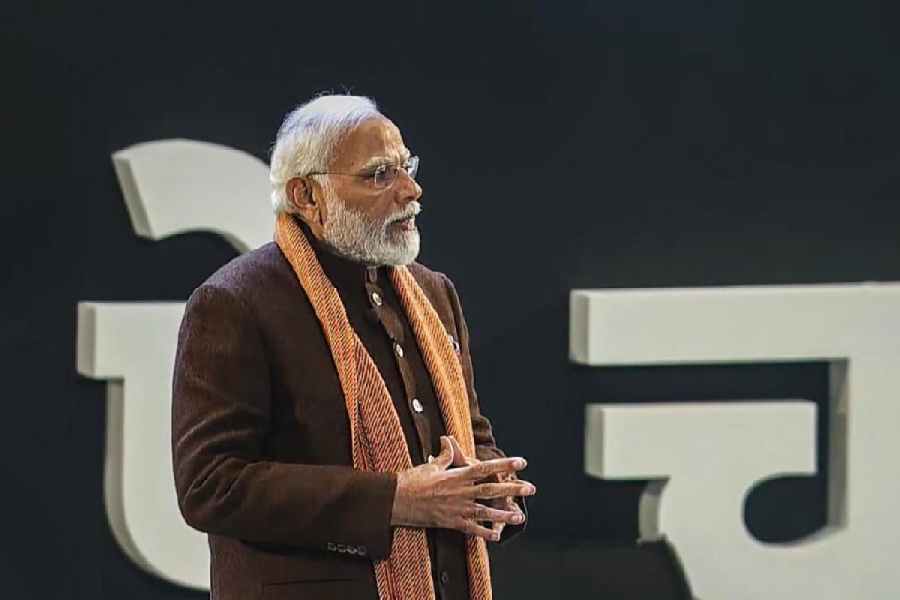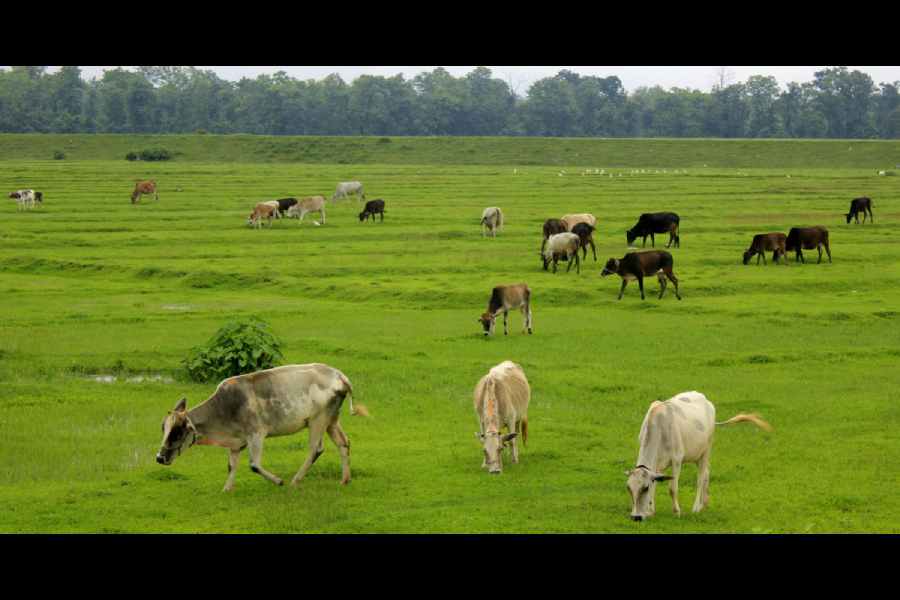Everyone knew Prime Minister Narendra Modi would be courting controversy when he decided the first foreign visit of his third term would be to Russia. The most commonly used description for Modi’s trip was “tightrope walk.” Could he strengthen ties with Russia without angering other allies like the US and the UK?
Modi and external affairs minister S. Jaishankar have crafted new terms like ‘multi-alignment’ and ‘all-alignment’ to describe India’s foreign policy. But the fact is the West glares suspiciously whenever India engages with its old ‘tried and tested’ buddy Russia.
Modi’s tightrope walk became even trickier because his Moscow visit coincided with the 75th anniversary of Nato celebrated at the military pact’s annual summit held in Washington. Joe Biden, presiding over a White House Nato dinner, remarked: “We don’t share a common border but we’re neighbours.” He might have added for good measure that the alliance is brought together by a common enemy: Russia.
Making Modi’s high-wire act even tougher, the Russians also happened to bomb Ukraine’s biggest pediatric hospital on the day Modi arrived in Moscow. Ukraine’s president Volodymyr Zelensky called it a “devastating blow” to see “the leader of the world’s largest democracy hug the world’s most bloody criminal in Moscow on such a day”.
Modi’s trip, and especially its juxtaposition against the Nato summit, certainly could be read in western capitals as Delhi thumbing its nose at efforts to turn Russia into a pariah state over Ukraine, though Indian officials downplayed the visit’s timing.
Pulling no punches, State Department spokesman Mark Miller said: “We’ve been quite clear about our concerns about India’s relationship with Russia” and expressed those concerns “directly.” Criticism from Washington’s outspoken ambassador to India, Eric Garcetti, was even more robust. "I know India likes its strategic autonomy, but in times of conflict, there’s no such thing as strategic autonomy," he said. “We will, in crisis moments, need to know each other… we will need to know we are trusted friends.”
Modi’s Russian visit definitely buttressed the fact that Vladimir Putin has been on a diplomatic roll in his quest to challenge the post-Cold War order dominated by the US and its allies. Since his fifth presidential term began in May, Putin has met over 20 world leaders including China’s Xi Jinping and North Korea’s Kim Jong-un.
For Modi, Putin laid out the welcome mat, driving him in his golf cart around his residence and taking him to pet his horses at the stable. The two exchanged paeans to their countries’ “all-weather friendship”. The high-water mark was a glittering Kremlin ceremony where Modi was presented with Russia’s highest award, the Order of St. Andrew the Apostle. Other non-Russian recipients include Xi and former Azerbaijan president Heydar Aliyev. Another famous awardee is Mikhail Kalashnikov, the inventor of the globe’s bestselling guns used by armed forces and terrorists around the world
Putin announced the award in 2019 but added the rider Modi would have to collect it in Moscow. The award places Modi right up there amongst Russia’s closest allies. Other non-Russian recipients include Xi and Mikhail Kalashnikov, the inventor of the globe’s bestselling guns used by armed forces and terrorists around the world
Did Modi’s visit – the first to Moscow in five years – give his Kremlin hosts everything they wanted? Modi pointed reference in remarks aired on Russian state TV to the lethal hospital bombardment may have disturbed the bonhomie between the two leaders.
At the same time, Modi may have eased Nato worries by bluntly criticising the bombing. Modi said: “Any person who believes in humanity feels pain when people die, and especially when innocent children die.” He repeated his criticisms at meetings in Vienna, his next halt after Russia.
Both India and Russia denied there had been any disagreement between the leaders, though a session of talks between the Indian and Russian delegations was subsequently cancelled after Modi’s hospital comments.
The greatest mystery of the trip surrounds the two-hour one-on-one dinner meeting between Modi and Putin for which no aides were called in. “I’d love to have been a fly on the wall,” says one veteran Russia analyst, adding, “they would have had open and frank discussions in a way that wouldn’t be possible with anyone else present. They could have been about the Ukraine war and US involvement and how India sees it. Or possibly they frankly discussed China.”
The question on many lips is who did the really plain talking? Was it Modi with specific requests for India? Or, could it have been Putin expressing his thoughts on India edging closer to the West?
The lengthy joint statement and the economic statement— well over 180 paragraphs and 13,000 words between them – issued at the close of the visit didn’t contain any dramatic new initiatives.
There was the usual promise to boost bilateral trade to $100 billion. But trade has shot up sharply anyway because Russia is now India’s largest oil supplier – overtaking countries like the UAE and Saudi Arabia where we used to buy most of our black gold from. India's state-run refiners also now are reportedly jointly negotiating a long-term oil import deal with Russia and private refiners may join the talks later.
Still, the visit seems to have been a success from both countries’ points of view, at least from a public standpoint Certainly, the fact it was the first foreign visit of Modi’s new term emphasised that the ties between the two countries, particularly when it comes to defence and weapons, remain solid and enduring. For India also, the visit demonstrated that New Delhi – despite its deepening US relationship – will chart its own course.
There’s no doubt that for Putin, the optics of the visit were good, underscoring that he’s not isolated on the diplomatic stage as he seeks to break US dominance of the world order.
For some analysts, though, the big question Is whether the India-Russia relationship may be past its best moments. At a peak, India bought about 60 per cent of its arms from Russia. That’s now down to a still formidable 45 per cent. Russia’s ability to deliver arms is also down sharply as its arms factories are working at full tilt to meet its own needs in fighting Ukraine.
Also, certainly, India and Russia now have differing views on China. Ever since the Galwan clash, India sees China as its new key enemy with Pakistan demoted to second spot. For Russia, China is the biggest buyer of its oil, which reaches there by pipeline. And, after the Ukraine war, China is now Russia’s top trade partner. In 2023 Russian exports to China were reckoned to be about $129 billion and imports from China about $111 billion. What’s more, the two sides are now using their own currencies for trade, eschewing the US dollar.
Finland’s President Alexander Stubb believes that Russia is now totally dependent on Beijing. Stubb told an interviewer on Tuesday: “Russia is so dependent on China right now…..One phone call from President Xi Jinping would solve this [Ukraine] crisis.”
If the Finnish president is right, India has to be asking itself just how much it can depend on Russia in the coming months and years. In this scenario, the West definitely has nothing to worry about India’s warm ties with Moscow.
Indeed, it might be that India could serve as a useful stalking horse for the West, for instance in helping end the Ukraine war. The joint statement issued at the close of Modi’s visit “noted with appreciation relevant proposals of mediation and good offices aimed at peaceful resolution of the conflict”.
The US seemed to see a potential upside from Modi’s visit with the White House saying India's relationship with Russia gives it an ability to urge Putin to end the war.

